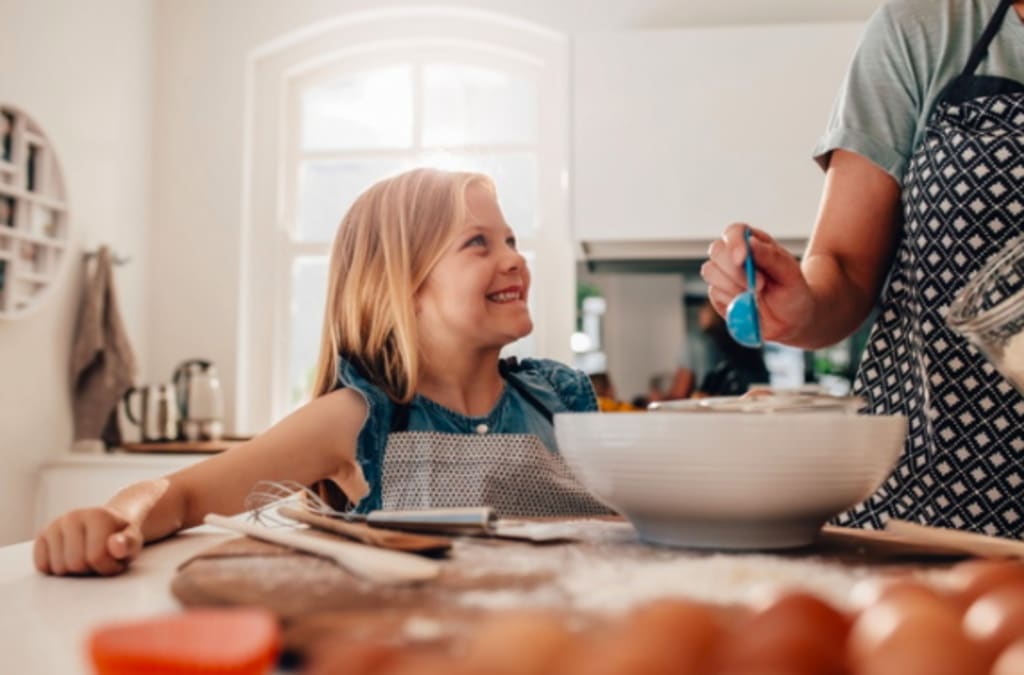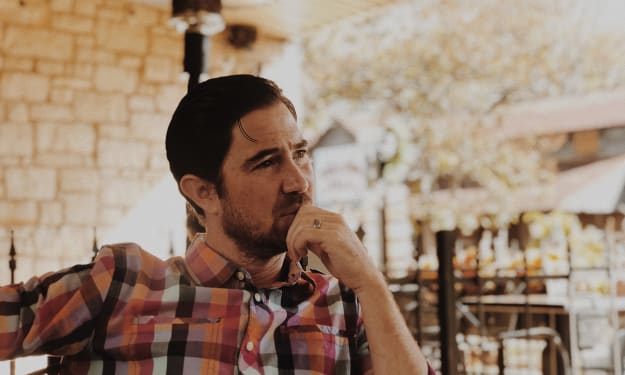My Mother's Pots
Memories are made of this...

It's ungraciously early on a biting spring morning and I'm watching my youngest son haring across the school tarmac, little chuffs of steam trailing his wake in the white March sunlight, and I'm crying. Not with the sentimentality such inevitable maternal unbridling provokes—nor icy panic caused by my nest emptying at an alarming rate. I'm crying because the canteen staff are cooking meat and onions, and I'm remembering my mothers shepherd's pie.
My mother was a fabulous cook. No, my mother really was. Her signatures were the round dense flatbreads known regionally as "stotties" and her flaky, deeply umami meat pies. I can still taste the salty, peppery filling of her corned beef pies, basic, primal even, and deeply comforting. Sundays were one-woman shows of plate-balancing, pie-crimping, bread-kneading and fairy-cake-piping. She'd emerge from the kitchen late afternoon, rosy with pride, frosted with icing and flour, her rough warm hands smelling of vanilla and home. The incredible thing about this dazzling display of culinary wizardry was that she was a tiny, chronically sick, single mother of seven.
I grew up surrounded by adults. There was my mother, a fiercely independent widow, plus four big sisters and two big brothers. My closest brother in age was ten years my senior, so I didn't have the typical rivalry or intimacy from my siblings. My childhood was satisfactory though. It would have been quite happy, had it not been dogged by frequent tragedy.
When I was eight-years-old, my brother had a cruel accident and was electrocuted with a faulty hand-held pressure washer. My mother had nursed and buried my grandmother the previous year and I don't know what had carried her through that awful, surreal time. My brother died three times and was resuscitated, but after waking from his four month coma, he wasn't my brother any more. My mother's lot became a life of nursing, and courts, and battles. Prescriptions, incontinence pads, wheelchairs, doctors... The lovingly baked food and cakes disappeared, familiar smells became dreams half remembered—spectres of a life we were owed. I think that was the year I really lost her. She never returned from the darkness.
I grew to detest the odour of flowers. They came like a twisted procession through our new home, silent emissaries of death. My mother, in her permanent mourning clothing like a slimmer version of Queen Victoria, rallied round making false pies and cakes, the taste of them souring our mouths. I tried to reach her many times, but she wasn't interested. Not really. I was occasionally useful as a shopping companion, a doppelganger hug when she yearned for her lost children instead. She kept the house like a shrine and we walked on shells of glass, each step torturous yet perversely comforting in its tangency.
The day my mother died is embedded in my memory like a crystal shard. It glints in the mists, a singular moment of clarity refusing to fade. I didn't see her immediately, following her passing. My family informed me there were post-mortems and inquests, though I struggle to recall how they knew. A week later the funeral director called to say she was ready. They'd dressed her in the cardigan she'd asked me to darn a fortnight before. The chemical smell sickened me. I won't ever forget it. It permeated my entire being, consuming my mortal fibres with insatiable greed. “Was she not enough for you?” I silently screamed in the shower later, my rough flannel creating comforting welts of fire on my raw flesh.
After the cremation they boxed her remains and I brought her home—to my home—a place she'd rarely visited. I placed her modest pot on the table, sat down and sobbed for a long time. But I was mourning the bond we'd never had; weeping at the unfairness of it all, and grieving the stolen chance to heal the rift between us. My family tried to rescue me of course. My husband supplied tea and infinite cuddles. My eldest son brought me a bunch of carnations—just once, God love him.
But, on this morning, an unnaturally bright, ordinary Monday morning, standing at the edge of the playground, I feel something switch within, and suddenly I know what I have to do.
I return to my kitchen and pull out my mothers baking crockery, close the door and lose myself in Eccles cakes and apple pie, sage flecked sausage rolls and crisp custard tarts dusted with nutmeg. My mother's plates are loaded and begin a purposeful procession to the oven. Painful memories disappear under a flurry of gluten-free flour and they fade a little. And suddenly, I'm seven years old, in my mother's kitchen, helping her glaze the pies and lay the bread, peel the apples and lick the spoon, holding her warm, rough vanilla-scented hand.
My first ever creative writing for university is this one—a semi-autobiographical piece about my often strained relationship with my mother, and the the loss of her and three of my siblings. The central theme is food, and how many memories, good and bad, are embedded within our food culture.
About the Creator
J M Hunter
Amazon - https://www.amazon.com/-/e/B07QNBJZVZ
Twitter - https://twitter.com/JulieHunter15?lang=en-gb
Instagram - https://www.instagram.com/lipstickandquills/
'The Adventures of Swampy the Slime Man' available to buy from Amazon now!







Comments
There are no comments for this story
Be the first to respond and start the conversation.